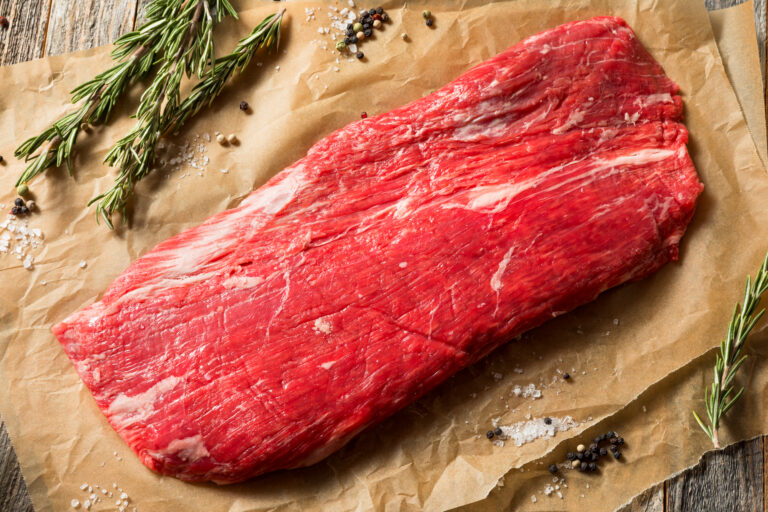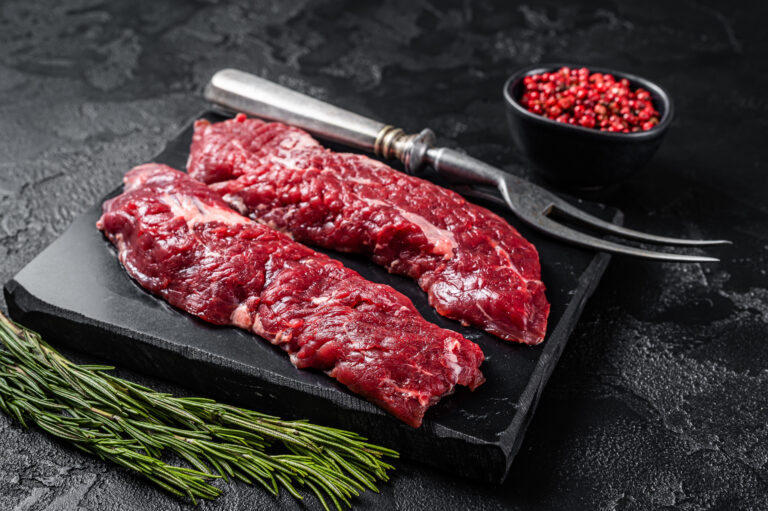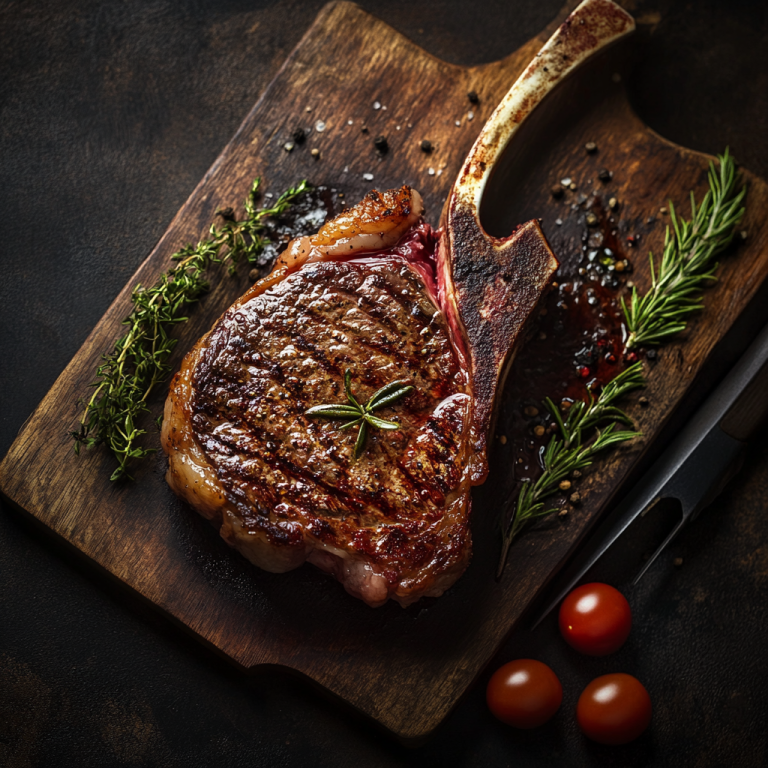7 Steak Marination Tips to Boost Flavor and Tenderness
Seasoning marination on steak enhances flavor profiles, improves texture, utilizes science for meat tenderizing, maximizes seasoning absorption, times marination, emphasizes salt’s role, and balances spices and herbs for a perfect steak.
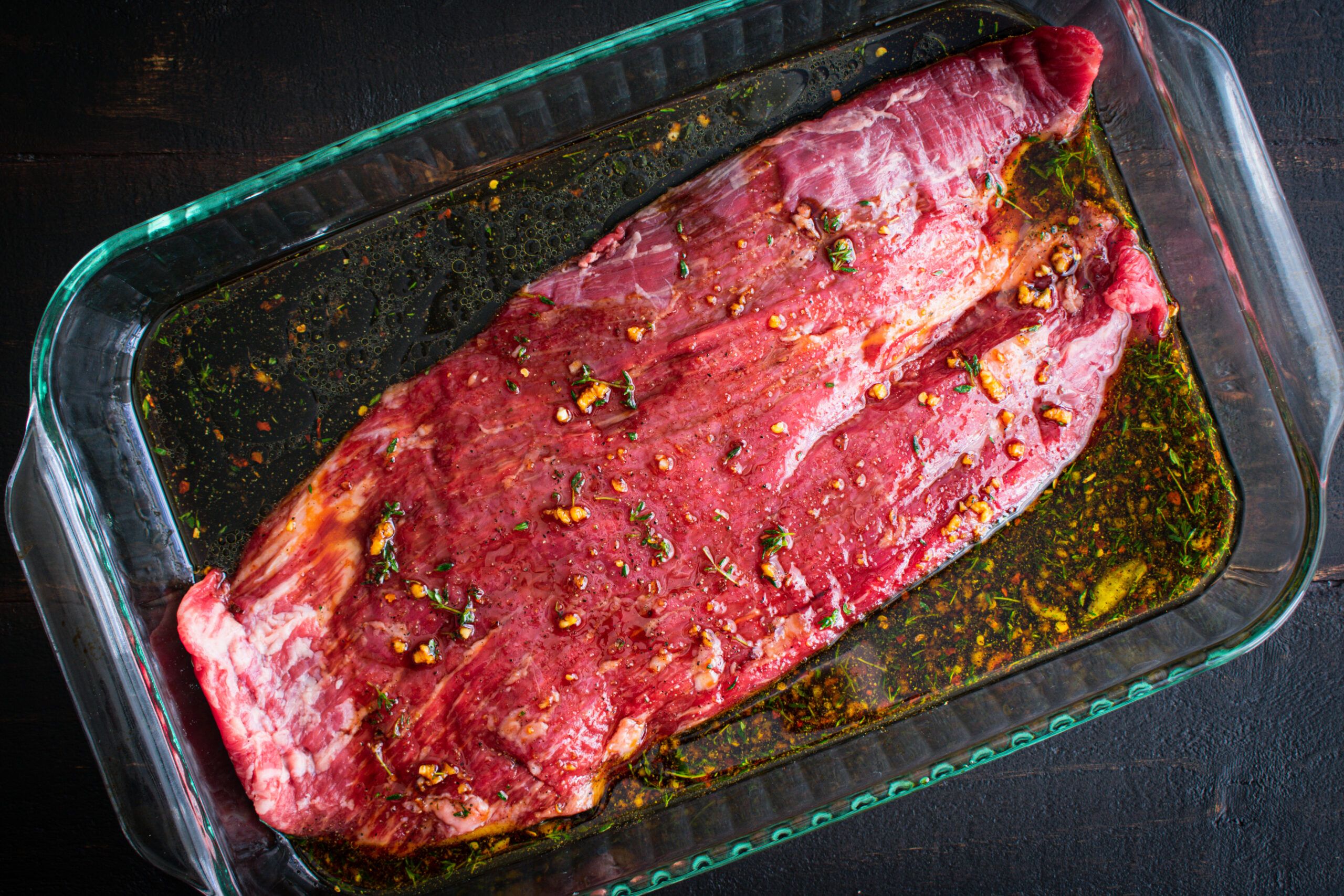
Steak marination is a culinary technique that can transform a good steak into a great one. Understanding the reasons behind letting seasoning marinate on steak is crucial for any cooking enthusiast looking to elevate their grilling game.
Marination, the process of soaking meats in a seasoned liquid before cooking, transforms steak by infusing rich flavors and tenderizing the meat. Beyond a simple mix of herbs and spices, mastering the art of marination involves understanding how ingredients interact to enhance the natural flavors and textures of the steak, making for a more enjoyable dining experience.
Disclosure: As an Amazon Associate, this site earns from qualifying purchases. Thank you!
1. Enhancing Flavor Profiles

The primary reason for letting seasoning marinate on steak is to enhance the meat’s flavor profile. Seasonings contain a variety of flavors ranging from savory garlic and onions to sweet, smoky paprika and earthy herbs. These flavors, when given time, meld together and adhere to the steak’s surface, creating a richer and more complex taste.
Moreover, the marination process allows the seasoning to seep into the meat, ensuring that every bite is as flavorful as the next. This is particularly important for thicker cuts of steak, which require more time for the flavors to penetrate the dense muscle fibers.
2. Texture Improvement Techniques

Marination doesn’t just add flavor; it can also improve the texture of the steak. Acidic components in the marinade, like vinegar or citrus juice, can break down tough muscle fibers, resulting in a more tender piece of meat. This is especially beneficial for tougher cuts that might otherwise be chewy or less enjoyable.
Additionally, enzymes found in certain ingredients like pineapple or papaya can further tenderize the steak by breaking down protein structures. This enzymatic action can be a double-edged sword, however, as over-marination can lead to a mushy texture, so timing is critical.
3. The Science of Meat Tenderizing

The science of meat tenderizing through marination is fascinating. Acidic ingredients in the marinade cause the outer layers of muscle tissue to swell and soften, which can make the steak more tender. This process, while not as effective as mechanical tenderization, can still contribute significantly to the final texture of the meat.
Proteins within the meat also react to the salt in the marinade, which can help to retain moisture during cooking. This reaction can lead to a juicier steak, as the protein structures are altered to better hold onto their natural fluids.
4. Maximizing Seasoning Absorption

To maximize seasoning absorption, it’s essential to allow enough time for the steak to marinate. The duration of marination is crucial for ensuring that the flavors not only coat the surface but also penetrate deep into the meat. A common mistake is to marinate for too short a period, which results in a less flavorful steak.
The type of seasoning used also affects absorption. Oil-based marinades can help carry fat-soluble flavor compounds into the meat, while water-based marinades work well for infusing the steak with herbs and spices. Balancing these elements can lead to a perfectly seasoned steak.
5. Timing Your Steak’s Marination

Timing is everything when it comes to marination. For most steaks, a marination period of 2 to 4 hours is sufficient to impart flavor and tenderness. However, for larger or tougher cuts, it may be beneficial to marinate overnight to allow ample time for the seasoning to work its magic.
It’s also important to consider food safety when marinating steak. Meat should always be refrigerated during the marination process to prevent bacterial growth, and any leftover marinade that has come into contact with raw meat should be discarded or boiled before being used as a sauce.
6. The Role of Salt in Marination

Salt plays a vital role in the marination process. It enhances the flavor of the steak and, more importantly, it helps to break down muscle proteins, which can lead to a more tender texture. When salt is dissolved in a liquid marinade, it creates a brine that can penetrate the steak more effectively than dry seasoning alone.
Moreover, salt helps to draw moisture to the surface of the meat, which can then be reabsorbed, bringing the flavors of the marinade along with it. This osmotic process not only seasons the steak but also helps to ensure it remains moist and juicy after cooking.
7. Balancing Spices and Herbs
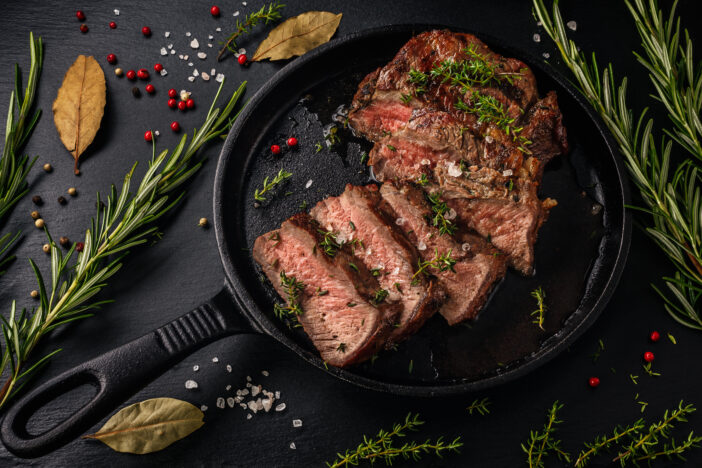
The art of marination also involves balancing spices and herbs to create the perfect flavor profile for your steak. Each spice and herb brings its unique taste and aroma, which can complement or overpower the natural flavor of the meat. It’s essential to consider the potency of each ingredient and how it will interact with the others in the marinade.
For instance, robust herbs like rosemary and thyme can withstand longer marination times, while delicate herbs like parsley and cilantro should be added toward the end of the marination period to retain their fresh flavor. Finding the right balance ensures that no single flavor dominates but rather enhances the steak’s natural taste.
Marination Myths Debunked
There are several myths surrounding marination that can lead to misconceptions about the process. One common myth is that marination can completely tenderize even the toughest cuts of steak. While marination does help, it’s more of a surface treatment, and other cooking methods may be needed to tenderize the meat fully.
Another myth is that poking holes in the steak will significantly increase flavor absorption. In reality, this can cause the steak to lose valuable juices during cooking, leading to a drier result. The key to effective marination is time and proper ingredient ratios, not piercing the meat.

